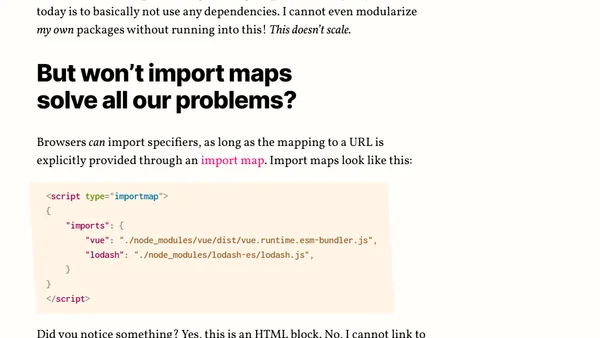
Web dependencies are broken. Can we fix them?
The article critiques the web's dependency management, arguing it's broken and should be a native platform feature, not reliant on bundlers.
Lea Verou is a web standards expert, developer, and designer with a PhD from MIT in Human-Computer Interaction. She has worked as Product Lead at Font Awesome, helped shape the web as a member of the W3C Technical Architecture Group, and has been part of the CSS Working Group since 2012. Her open-source tools like PrismJS and Color.js are used by millions of developers worldwide. Lea is also the author of a bestselling CSS book, a frequent conference speaker, and an advocate for making technology simpler, more usable, and open for everyone.
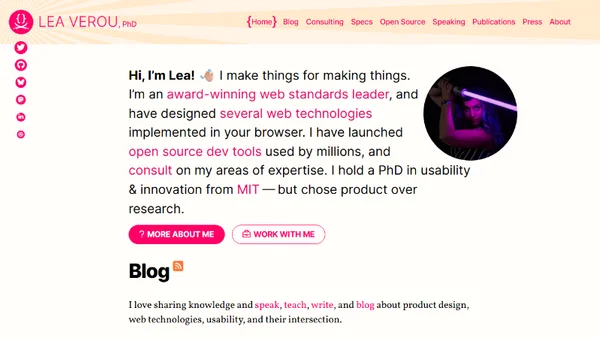
211 articles from this blog

The article critiques the web's dependency management, arguing it's broken and should be a native platform feature, not reliant on bundlers.
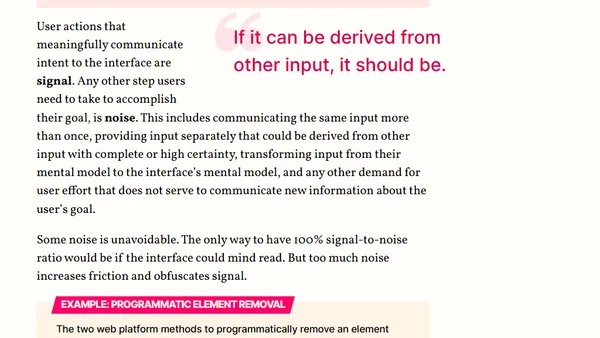
Explores software design philosophy of minimizing user effort, using Google Calendar as an example of optimizing for common cases while supporting edge cases.
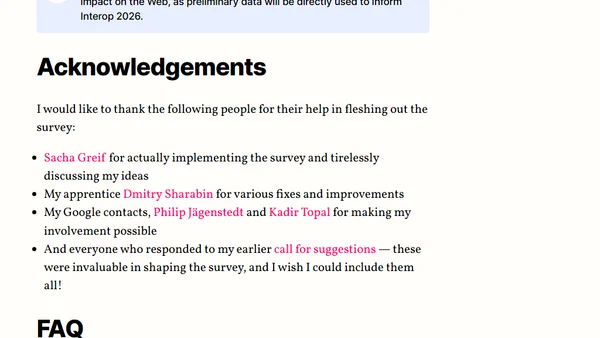
The State of HTML 2025 survey is now open, allowing web developers to influence browser vendors and web standards.
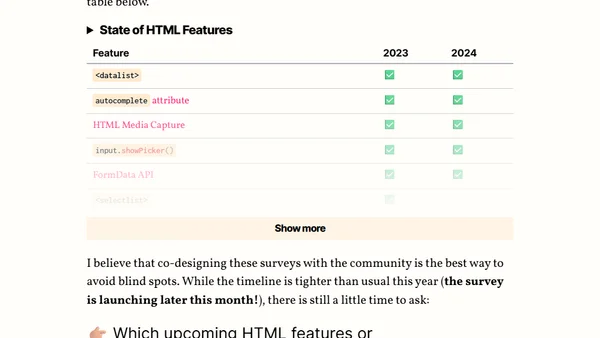
The author announces the State of HTML 2025 survey, explaining its history and how past results have directly influenced web standards.
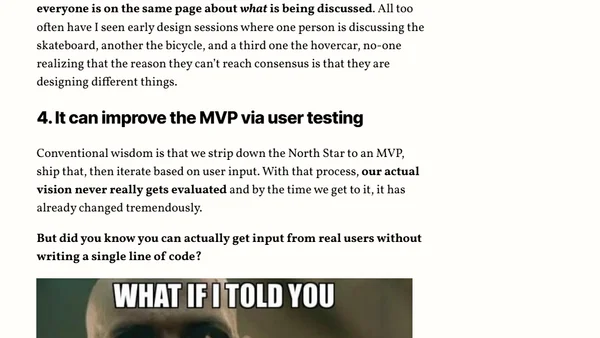
A framework for product design that expands the MVP concept with stages from a basic 'Skateboard' to an ideal 'Hovercar' vision.
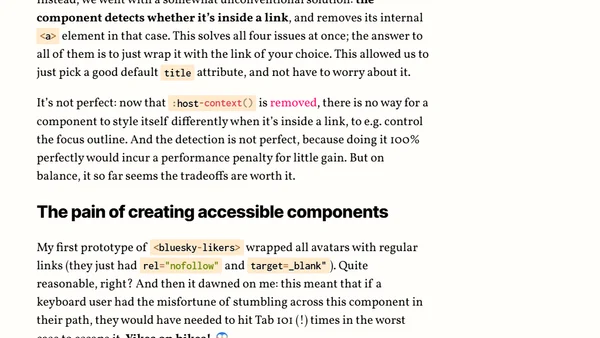
A developer rants about building accessible web components while creating open-source components to display Bluesky likes using its open API.
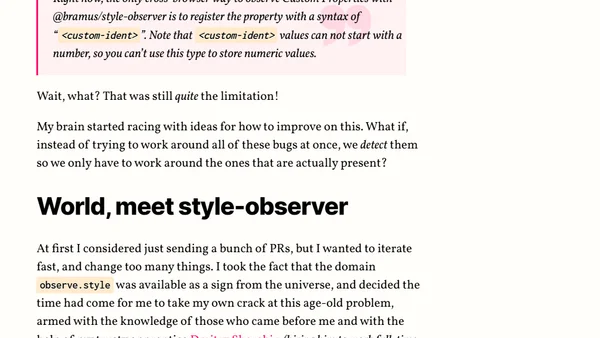
Introducing style-observer, a JavaScript library to detect and respond to CSS property changes, including custom properties.
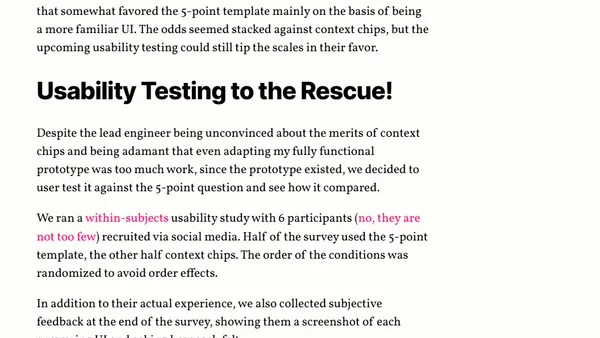
A UX case study on designing 'Context Chips' to collect user sentiment in surveys, improving data quality and user experience.
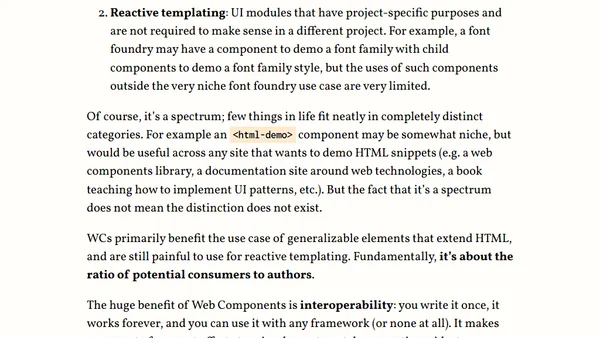
A defense of Web Components, explaining their differences from JavaScript frameworks and why their long-term, standards-based approach is valuable.
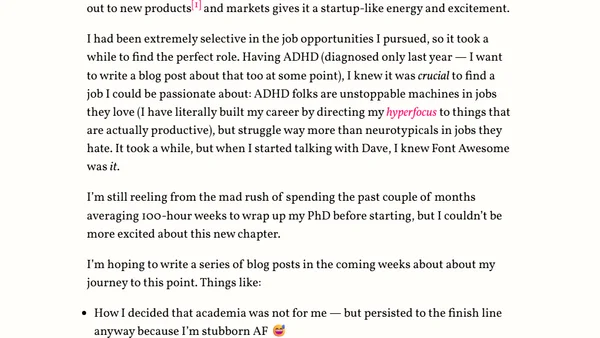
A developer shares their new role at Font Awesome, focusing on Web Awesome and improving web UI development with web components and CSS.
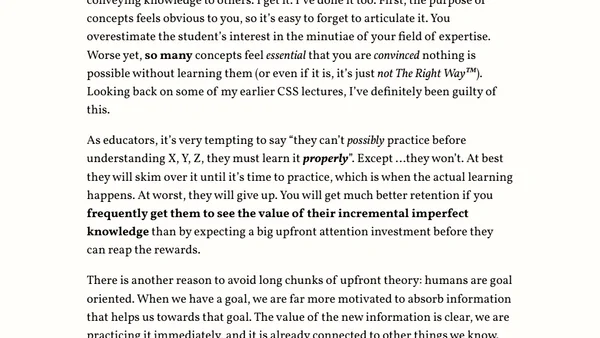
Applying API/UI design principles to education, arguing for immediate engagement over delayed theory to improve knowledge transfer.
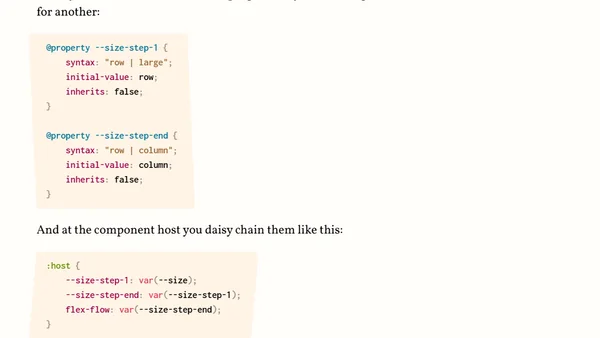
Exploring current CSS hacks for conditionals before the official if() function arrives, discussing trade-offs between developer convenience and user needs.
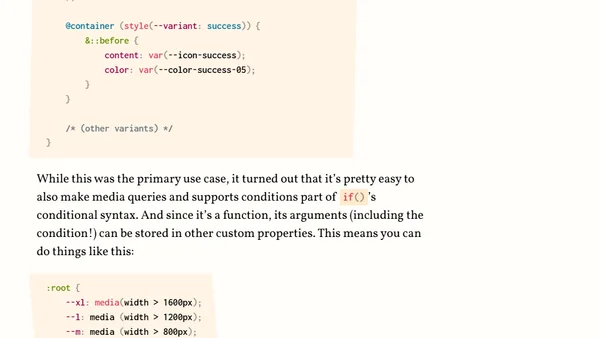
The CSS WG has approved adding an inline if() function to CSS, a new feature for conditional logic within stylesheets.
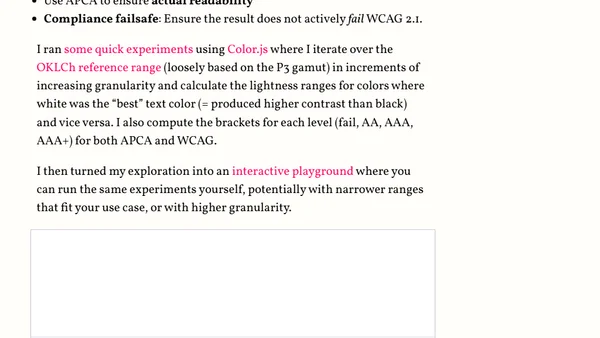
Exploring CSS Relative Colors to generate accessible text colors, comparing it to the upcoming contrast-color() function and discussing tradeoffs.
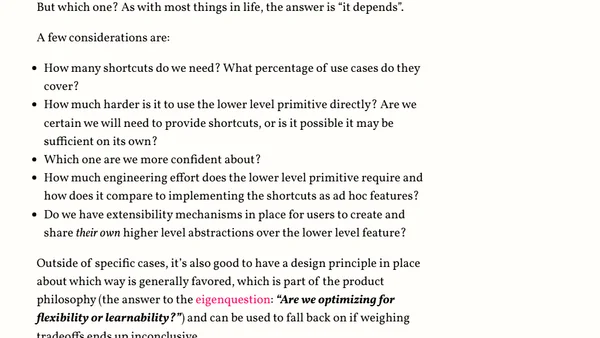
Explores eigensolutions and composability in creator tools to combat overfitting and improve generalization across diverse use cases.

Analyzing the trade-off between minimalist design and usability, using GitHub's new comment UI as a case study of form over function.
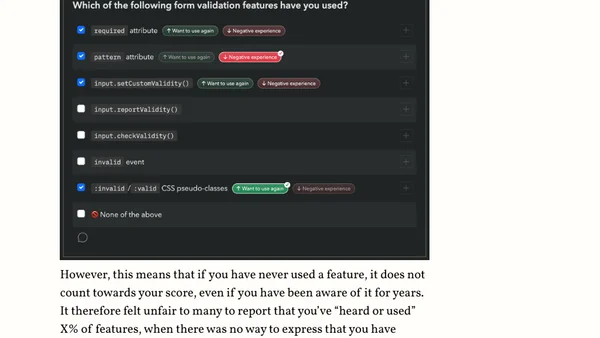
The State of HTML 2023 survey is now open, gathering developer feedback to influence browser roadmaps and web standards.
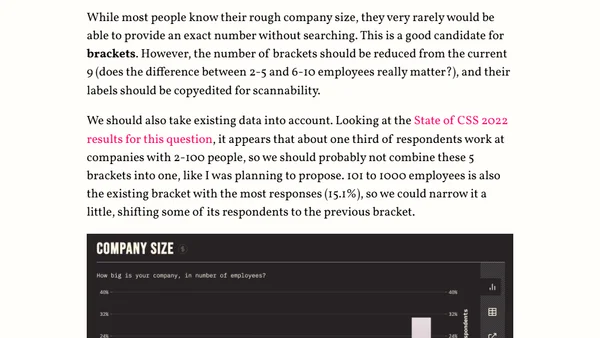
Analysis of using numerical inputs vs. brackets for survey questions like age and income, focusing on UX and data analysis trade-offs.
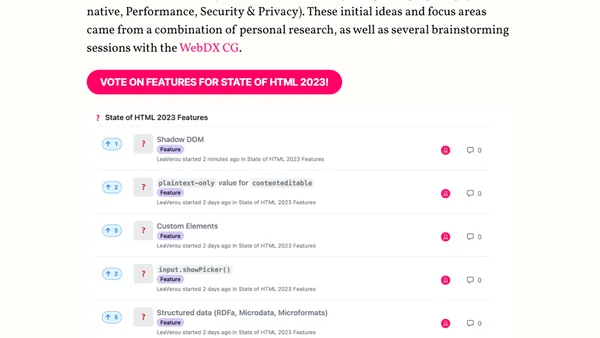
Announcing the new State of HTML survey, seeking community input to design the inaugural survey on HTML features and developer practices.
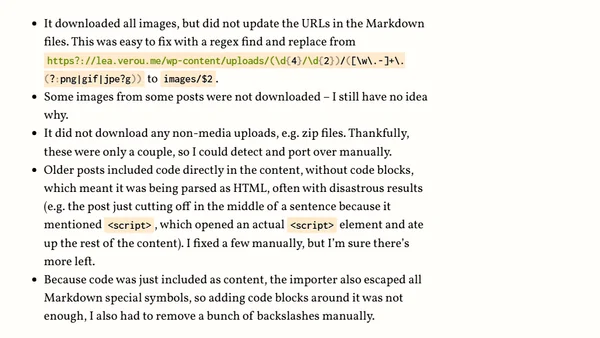
A developer's journey migrating a 14-year-old WordPress blog to a leaner, static site using Eleventy and Netlify, detailing the reasons and process.